Take Charge of Securing Your Credit: 7 Proven Tactics to Beat Fraudsters
Credit plays a pivotal role in shaping an individual’s financial trajectory and Mukesh Dalmia realized it recently during a routine visit to Staples. Upon applying for a store membership card, his application was rejected because of an insufficient credit score. Despite his attention to paying his bills on time, his score had plummeted from a respectable 670 to a dismal 340. He soon learned that his bank account had fallen victim to a malicious hack. The perpetrator not only siphoned $3,000 from his account but also managed to tarnish his credit score. For Dalmia, a newcomer, this encounter served as an eye-opener to the pervasive threat of digital fraud. Unfortunately, his ordeal is not unique, as countless others have fallen prey to similar schemes.
According to a survey by TransUnion, a Canada-based credit reporting agency, 60 percent of Canadians said they were targeted with online, email, phone call, or text messaging fraud in the last three months, of which 10 percent fell victim. The country experienced a significant increase in suspected digital fraud attempts in 2023, with more than 5 percent of all transactions where the consumer was in Canada being targeted by suspected fraud, revealed a new data analysis from TransUnion. So how to help mitigate the risk of falling victim to fraud? Here are a few tips shared by Hyunjoo Kim, Director, Corporate Affairs and Communications at TransUnion:
- Credit Monitoring: Monitor your credit report regularly for any unauthorized activity. It is important to track your credit score to check for significant score changes based on your borrowing and debt payment activities. If those checks reveal signs of suspicious activity, or if you have reason to be concerned that your personal data has been compromised, immediately act upon it.
- Track bank statements: Take the time to reconcile your bank statements regularly. If you spot any unfamiliar transactions, don't hesitate to question them. Promptly reporting unrecognized purchases can help mitigate potential losses and prevent further fraudulent activity.
- Be Selective with Credit Cards: Limit the number of credit cards you own and consider cancelling any inactive accounts. By reducing your exposure to multiple credit lines, you can minimize the risk of falling victim to fraud.
- Secure Important Documents: Protect sensitive documents such as extra credit cards, birth certificates, SIN cards, or passports. Avoid carrying them in your wallet which helps limit the potential misuse of your personal information in case of loss or theft. Also, avoid discarding credit card receipts or other personal information in public trash containers—use a shredder to dispose of sensitive documents safely.
- Scrutinize all your charges: Review your charges meticulously to verify that they are all legitimate. By staying vigilant, you can catch any unauthorized charges early on and take appropriate action to address them.
- Strengthen Password Practices: Avoid using similar passwords across multiple accounts. Memorize passwords and PINs instead of writing them down to minimize the risk of unauthorized access. By maintaining strong password hygiene, you can enhance the security of your personal information.
- Consider a Potential Fraud Alert: If you suspect you may be a target of fraud, but no misuse of your credit or personal information has been reported, consider placing a Potential Fraud Alert on your credit file. This alert notifies potential lenders of the potential risk and provides them with your contact information for further verification.
Protecting your credit from fraud requires proactive measures and heightened awareness. By implementing these tips and remaining vigilant, you can safeguard your financial well-being and minimize the risk of falling victim to fraudulent schemes.
